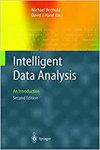多粒度视角下的网络表征学习综述
IF 0.8
4区 计算机科学
Q4 COMPUTER SCIENCE, ARTIFICIAL INTELLIGENCE
引用次数: 0
摘要
网络数据无处不在,如电信、运输系统、在线社交网络、蛋白质之间的相互作用等。由于网络数据规模庞大、复杂度高,以往的机器学习系统在理解网络数据时困难重重。另一方面,多粒度认知计算思想模拟了人类大脑解决问题的过程。它将复杂的问题简单化,由易到难地解决问题。因此,将多粒度解决问题的思想或方法应用于网络数据挖掘越来越被研究者有意或无意地采用。本文研究的是网络表示学习(NRL)领域。它系统梳理了近年来该领域的研究工作。本文发现,在处理网络复杂性和追求计算资源效率的过程中,多粒度解决方案成为一条难以绕开的绝佳路径。虽然目前已有多篇关于NRL研究的论文,但据我们所知,从多粒度计算的角度来研究NRL还是第一次。本文提出了 NRL 所面临的挑战。此外,还分析和讨论了用多粒度计算方法解决 NRL 挑战的可行性。本文梳理了一些潜在的关键科学问题,并展望了将多粒度计算应用于 NRL 研究的前景。本文章由计算机程序翻译,如有差异,请以英文原文为准。
A review on network representation learning with multi-granularity perspective
Network data is ubiquitous, such as telecommunication, transport systems, online social networks, protein-protein interactions, etc. Since the huge scale and the complexity of network data, former machine learning system tried to understand network data arduously. On the other hand, thought of multi-granular cognitive computation simulates the problem-solving process of human brains. It simplifies the complex problems and solves problems from the easier to harder. Therefore, the application of multi-granularity problem-solving ideas or methods to deal with network data mining is increasingly adopted by researchers either intentionally or unintentionally. This paper looks into the domain of network representation learning (NRL). It systematically combs the research work in this field in recent years. In this paper, it is discovered that in dealing with the complexity of the network and pursuing the efficiency of computing resources, the multi-granularity solution becomes an excellent path that is hard to go around. Although there are several papers about survey of NRL, to our best knowledge, we are the first to survey the NRL from the perspective of multi-granular computing. This paper proposes the challenges that NRL meets. Furthermore, the feasibility of solving the challenges of NRL with multi-granular computing methodologies is analyzed and discussed. Some potential key scientific problems are sorted out and prospected in applying multi-granular computing for NRL research.
求助全文
通过发布文献求助,成功后即可免费获取论文全文。
去求助
来源期刊

Intelligent Data Analysis
工程技术-计算机:人工智能
CiteScore
2.20
自引率
5.90%
发文量
85
审稿时长
3.3 months
期刊介绍:
Intelligent Data Analysis provides a forum for the examination of issues related to the research and applications of Artificial Intelligence techniques in data analysis across a variety of disciplines. These techniques include (but are not limited to): all areas of data visualization, data pre-processing (fusion, editing, transformation, filtering, sampling), data engineering, database mining techniques, tools and applications, use of domain knowledge in data analysis, big data applications, evolutionary algorithms, machine learning, neural nets, fuzzy logic, statistical pattern recognition, knowledge filtering, and post-processing. In particular, papers are preferred that discuss development of new AI related data analysis architectures, methodologies, and techniques and their applications to various domains.
 求助内容:
求助内容: 应助结果提醒方式:
应助结果提醒方式:


